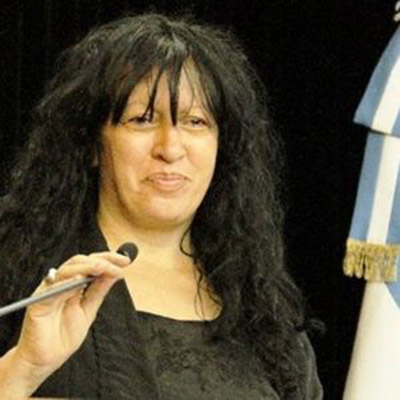BOGOTA, (Thomson Reuters Foundation) – Sold as a teenager into the sex trade which she endured for nearly four decades, Uruguayan Sandra Ferrini will see her onetime dream of exposing the hell she suffered become reality on Tuesday at the country’s first anti-human trafficking march.
Ferrini, who said she was ensnared in forced street prostitution after her mother “sold” her, will join hundreds of campaigners in the streets of Montevideo, capital of this nation of 3.5 million where the most common human trafficking involves women and girls forced into sex work.
The U.S. State Department’s 2019 Trafficking in Persons report put Uruguay in its Tier 2 Watch List – the second-lowest ranking – for not meeting minimum standards in efforts to eliminate human trafficking.
“It’s a march that I thought about when I was held captive,” Ferrini told the Thomson Reuters Foundation.
“Human trafficking happens every day, but people don’t want to see it. We are seen as numbers, said Ferrini, 58.
“We want to be seen as people. We will march as people.”
Ferrini says she was sexually exploited for 37 years on the city streets of Chile, Paraguay and Argentina and in Europe, forced to have sex with up to 30 men a day.
“I naturalized this as a child – for me it was something that I thought I had to live,” said Ferrini, who heads “Yes to Life, No to Trafficking,” a survivors support group.
In recent years, women from the Dominican Republic, Cuba and Venezuela are increasingly being trafficked to Uruguay where they are sexually exploited in bars and brothels, Ferrini said.
Often from poor families, the women are preyed upon by traffickers who pay for their flights and offer false promises of a better life and well-paid jobs in Uruguay.
“There’s a lot of work to do in education, training and prevention,” Ferrini said.
Trafficking survivors need help rebuilding their broken self-esteem so they can move on and not get stuck in the past, she explained.
Uruguay’s National Institute for Women helped 172 women trafficking victims in 2017, up from 131 in 2016, of which more than half were foreign, the U.S. State Department said.
Last year Uruguay updated its anti-human trafficking law and action plan, and formed a new national committee this year as part of its anti-trafficking efforts.









